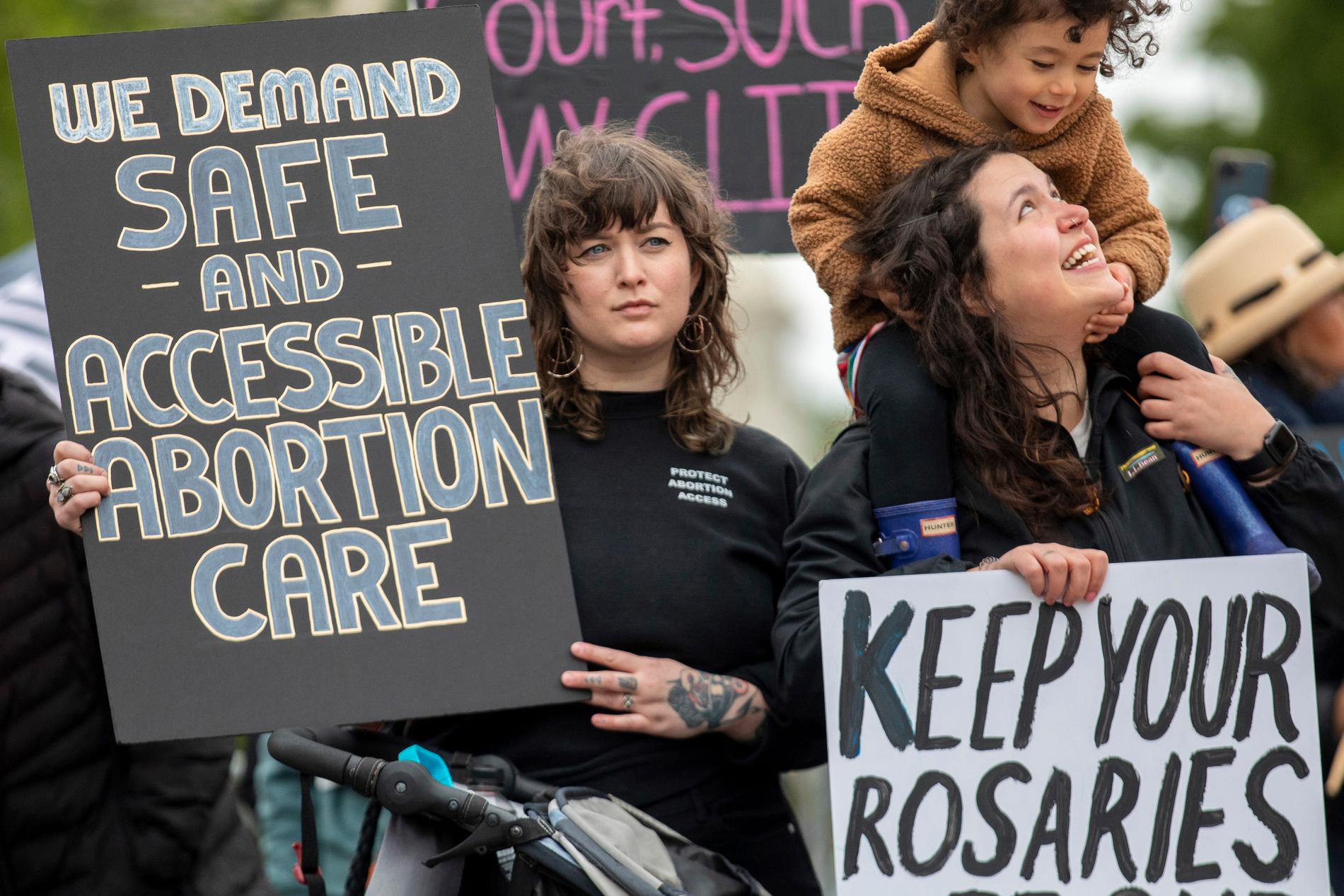The right to abortion in the United States was granted by a Supreme Court ruling back in 1973, also known as “Roe v. Wade”.
The case was about a woman in Texas who wanted to have an abortion, but could not as abortion was banned in Texas at the time.
The woman went by the name “Jane Roe”, while her real name was Norma McCorvey.
The Supreme Court concluded that abortion was a fundamental right for women , due to the right to privacy.
There is no separate abortion law in the United States at the national level, but the Supreme Court’s ruling from 1973 means that states cannot make laws that prohibit abortion.
–sea view
Preparing
It is a week since the draft from the Supreme Court was leaked and created first full confusion, so strong reactions.
In several states, legislators are getting ready to introduce abortion laws that have previously been stopped by the Supreme Court, writes The Guardian .
Several states, including Georgia, South Carolina and Ohio, have tried to introduce a so-called “heartbeat bill”. A law that prohibits abortion if one can detect heartbeat on the fetus, which is often after six weeks.
–
“HEARTBEAT BILL”: The governor of South Carolina, Henry McMaster in 2021 after signing an amendment to the law banning abortion after six weeks. The amendment was stopped by the federal court. Foto: Jeffrey Collins / AP The laws have been stopped because of “Calm down Wade”, but now these laws can become a reality.
Before these laws can possibly be enforced, each public prosecutor must formally ask the court to reverse the decision to block the bills.
And that is exactly what more people are doing, according to the newspaper .
–
WILL CHANGE: Ohio Gov. Mike DeWine said last week that Ohio State Attorney will ask the court to lift the block on a state law banning abortion after six weeks. Photo: Paul Vernon / AP The day after the draft from the Supreme Court was leaked, the governor of Ohio, Mike DeWine, stated that if “Roe mot Wade” falls, state attorney Dave Yost will ask the court to no longer block a state law that will ban abortion six weeks into pregnancy.
Will classify abortion as murder
In the southern state of Louisiana, Republicans last week put forward a bill that will reclassify abortion to homicide and which in addition will extend the sentence to hit the pregnant woman.
– We have been waiting 50 years to get to this point, said Republican Danny McCormick, the state representative behind the bill.
Under “Roe mot Wade”, such a bill is probably unconstitutional, but without it the case is different.
Whether other states will follow Louisiana’s example is uncertain, believes Mary Ziegler, an abortion law researcher and professor at Florida State University College of Law.
– On the one hand, these are states that have no reason to punish women and pregnant women , but I think the pressure will increase. When someone is out first, it may be easier for other states to follow, Ziegler tells The Guardian.
–
LARGE DEMONSTRATIONS: The leaked draft from the Supreme Court has started a number of demonstrations in the United States. Photo: SCOTT OLSON / AFP State governors may convene extraordinary legislative meetings to introduce new anti-abortion laws, but so far no one has done so publicly.
In Indiana, located in the Midwest, Republicans have urged the governor to convene such a meeting if “Roe against Wade” is overturned.
Also in Nebraska, lawmakers have announced a possible extraordinary meeting after the Supreme Court voted on the abortion ruling.
Expect 32,000 abortions a year
New York , on the other hand, is heading in the opposite direction.
On Monday, New York State Attorney Letitia James stated that the state will expand access to perform abortions for residents – but also for those living in states where abortion may be banned.
“We know what happens when women do not have control over their own bodies and can not make their own choices, and we do not want to go back to such dark times,” James said in a statement.
–
EXPECTED INCREASE: The public prosecutor in New York, believes the number of abortions performed in New York will increase drastically if the Supreme Court revokes “Roe against Wade”. Photo: SPENCER PLATT / AFP In 2019, New York performed 7,000 abortions a year from women living in other states, according to one statement from the public prosecutor’s office.
If “Roe mot Wade” is overturned, the state expects the number of abortions performed to increase to more than 32,000 a year.
“New York must lead the fight to protect the fundamental right to choose,” James wrote on Twitter.
–
